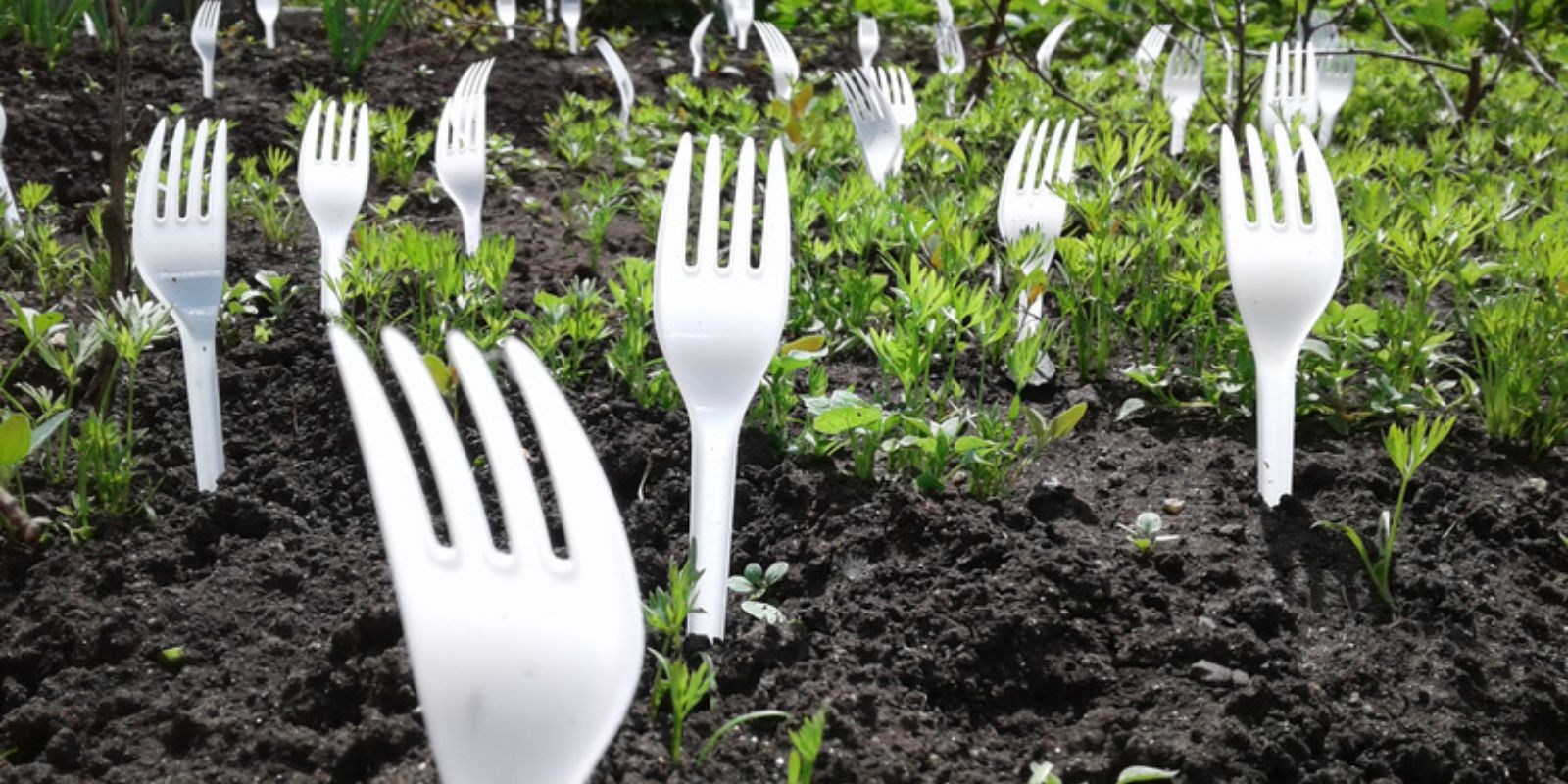Gardening is a rewarding pursuit that brings joy and beauty to our lives, but it often comes with challenges—one of the most significant being pests. From rabbits to insects, these uninvited guests can wreak havoc on our beloved plants. Fortunately, gardeners are always looking for creative and effective solutions to protect their green spaces. One such innovative approach is using plastic forks as a pest deterrent. This article will explore how this simple household item can help keep pests at bay, along with step-by-step instructions, benefits, and tips for enhancing your garden’s defenses.
Understanding the Pest Problem
Before diving into the solution, it’s essential to understand the types of pests that commonly threaten gardens. Many gardeners face issues with:
- Insects: Aphids, caterpillars, and beetles can damage leaves, stems, and roots.
- Small Animals: Rabbits, squirrels, and groundhogs can quickly decimate vegetable patches and flower beds.
- Birds: While often a delight to watch, birds can peck at fruits and seeds, leading to loss.
Each of these pests poses a unique challenge, and traditional solutions often involve chemical repellents or traps, which can be harmful to both the environment and beneficial insects. This is where the idea of using plastic forks comes into play—providing a non-toxic, eco-friendly alternative to deter pests.
Why Use Plastic Forks?
1. Physical Barrier
Plastic forks create a physical barrier around plants. By placing the forks in the ground, they make it difficult for pests to reach the plants without getting poked or entangled. This method can be especially effective against small animals and insects that may find it challenging to navigate around the forks.
2. Simplicity and Accessibility
Most households have plastic forks on hand, making this method accessible and cost-effective. There’s no need to purchase expensive repellents or traps, and setting up the forks takes only a few minutes.
3. Eco-Friendly Solution
In an age where sustainability is a priority, using plastic forks helps reduce waste. Instead of discarding forks, re-purposing them in your garden contributes to a greener planet.
4. Aesthetically Pleasing
While it may sound unusual, properly arranged plastic forks can add a quirky touch to your garden. You can even choose colorful forks to brighten up your space while serving a practical purpose.
Step-by-Step Guide to Using Plastic Forks
Step 1: Gather Your Materials
You’ll need:
- Plastic forks (any color works, but consider bright ones for visibility)
- Scissors (optional, for trimming the tines)
- A garden area you wish to protect
Step 2: Prepare the Forks
If you prefer shorter tines for easier insertion, use scissors to trim them down. However, this is optional—standard-length forks work just fine.
Step 3: Insert the Forks
- Choose Your Plants: Identify which plants you want to protect. This could be vegetable seedlings, herbs, or flowering plants.
- Spacing: Insert the forks into the soil around the plants, tines facing outward. Space them about 6-12 inches apart to create a sufficient barrier.
- Depth: Ensure the forks are inserted deep enough to stay upright but not so deep that they harm the roots of your plants.
Step 4: Monitor and Adjust
After installation, keep an eye on the area. Check that the forks remain upright and adjust as needed. If you notice any signs of pest damage, consider adding more forks or rearranging them for better coverage.
Step 5: Experiment with Patterns
For added effectiveness, experiment with different arrangements. You can create circular barriers around individual plants or long lines along garden rows. This flexibility allows you to tailor the setup to your specific garden layout.
Additional Tips for Enhancing Pest Deterrence
1. Combine Methods
While plastic forks can be effective, combining them with other natural deterrents can enhance protection. Consider using:
- Companion Planting: Planting certain plants together can naturally repel pests.
- Essential Oils: Spraying diluted essential oils (like peppermint or citronella) around the area can deter insects.
- Mulch: Using organic mulch can create an additional barrier against small pests.
2. Regular Maintenance
Keep your garden tidy. Remove any debris or dead plants that could harbor pests, and regularly check your plastic forks to ensure they remain effective.
3. Educate Yourself About Pests
Understanding the specific pests that threaten your garden can help you customize your approach. Research their habits, and adjust your methods accordingly.
4. Use Multiple Deterrents
Incorporate different types of deterrents—such as other recycled items like bottles or stones—to create a more robust defense system. Mixing techniques can confuse pests and make your garden less inviting.
The Benefits of Using Plastic Forks in Your Garden
1. Cost-Effective
Utilizing items you already have at home can save you money on commercial pest control products.
2. Non-Toxic
This method is safe for children, pets, and beneficial insects, unlike many chemical treatments.
3. Easy to Implement
The simplicity of inserting forks into the ground makes this technique accessible for gardeners of all experience levels.
4. Minimal Effort
Once the forks are in place, there’s little ongoing maintenance required, allowing you to enjoy your garden without constant vigilance.
Conclusion: A Simple Solution for a Big Problem
Using plastic forks as a pest deterrent is a clever, eco-friendly solution that not only protects your garden but also contributes to a more sustainable lifestyle. By creating a physical barrier with items that are often discarded, you can significantly reduce the risk of pest damage while adding a unique touch to your gardening efforts.
So, the next time you’re faced with a pest problem, don’t rush to the store for expensive solutions. Instead, reach for those plastic forks in your kitchen drawer and give this innovative method a try. Your plants will thank you!
Call to Action
Are you ready to take your garden protection to the next level? Share your experience using plastic forks in your garden and connect with fellow gardening enthusiasts! Join the conversation and inspire others to embrace this quirky yet effective method.
Use hashtags like #GardenHacks #EcoFriendlyGardening #PestControl #GardeningTips #SustainableLiving to spread the word!

